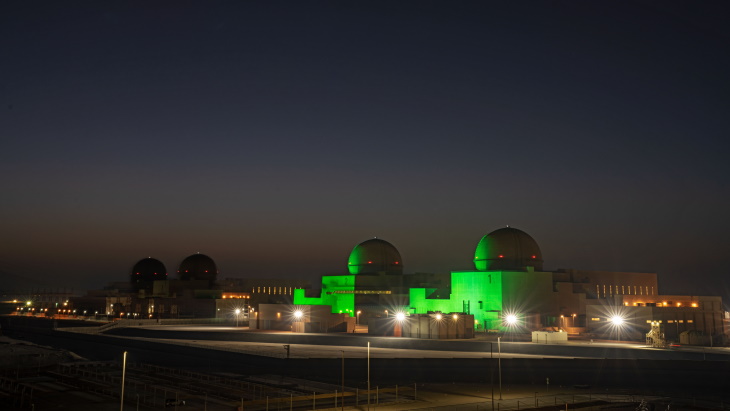The Barakah Nuclear Power Plant is a positive success story that signifies the cooperation and collective action between various stakeholder organisations and authorities, a Wam report said.
The Emirates Nuclear Energy Corporation (ENEC), in cooperation with its partners, is a major player in the development of the country’s peaceful nuclear programme.
ENEC on Thursday (March 24) issued a recent report marking the commercial operation of Barakah’s second reactor, which highlights the fact that the Federal Authority for Nuclear Regulation (Fanr) has reviewed more than 15,000 pages of the application for obtaining an operating licence before granting it for the first unit in 2020 and the second unit in 2021.
Fanr has currently conducted more than 360 inspections at the plant to ensure that it meets all regulatory requirements, and 44 relevant reviews have been completed by international experts, such as the World Nuclear Association and the International Atomic Energy Agency.
The plant is a major contributor to the country’s initiative to achieve climate neutrality by 2050, and is the largest single source of environmentally-friendly electricity in the region.
Upon completion, the plant will generate 5,600 megawatts of environmentally-friendly electricity, which will cover 25 per cent of the UAE’s electricity needs while reducing carbon emissions by 22.4 million tonnes annually.
Construction work on the plant’s first reactor began in 2012 and the remaining work has continued to progress steadily. The construction of the third reactor was completed in November 2021 and its operating systems have been delivered in order to obtain an operating licence from Fanr, which is expected to happen this year.
Construction work on the fourth reactor has reached its final stages, and it is currently 92 percent completed while the overall level of completion of the four reactors stands at 96 percent.
The plant has four third-generation APR1400 reactors, each with an operating life of 60 years.
ENEC and its subsidiaries employ more than 3,000 people from about 50 different nationalities, 60 per cent of whom are Emirati nationals, and women constitute 20 per cent of the total workforce.

 Entertainment5 months ago
Entertainment5 months ago
 Entertainment5 months ago
Entertainment5 months ago
 Entertainment5 months ago
Entertainment5 months ago

















